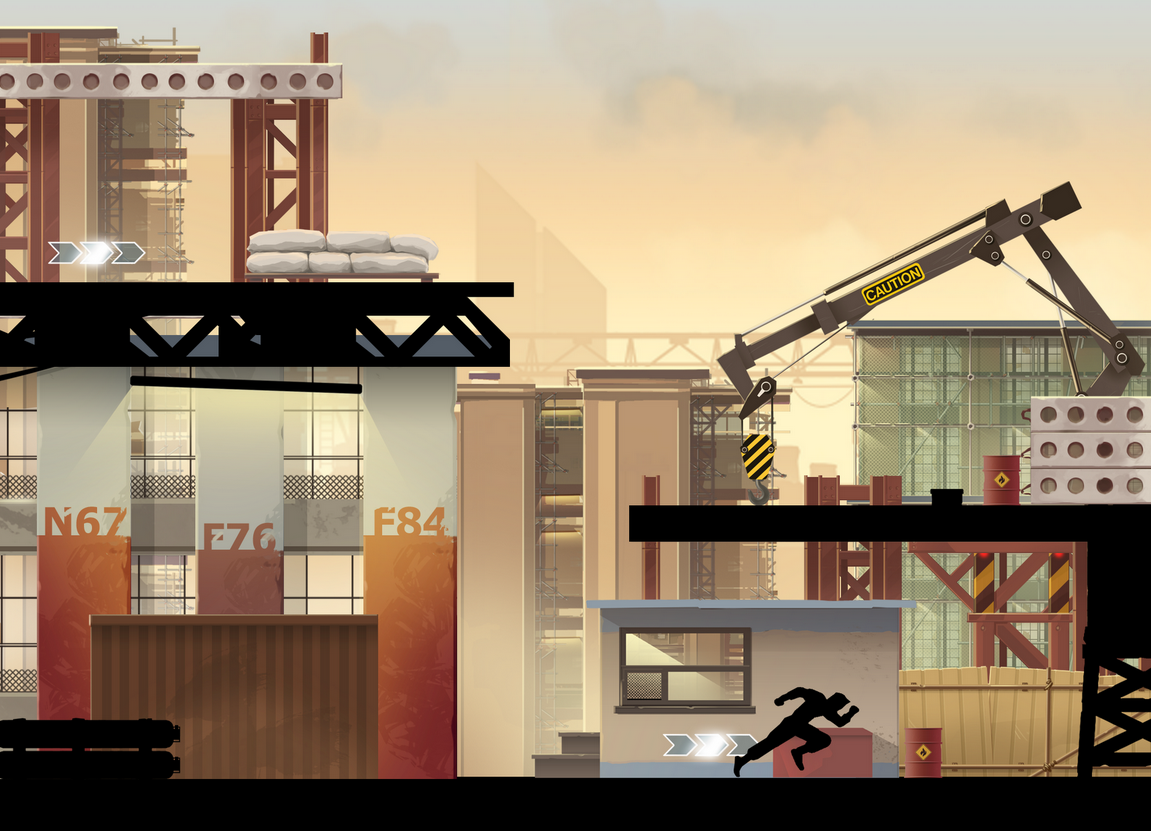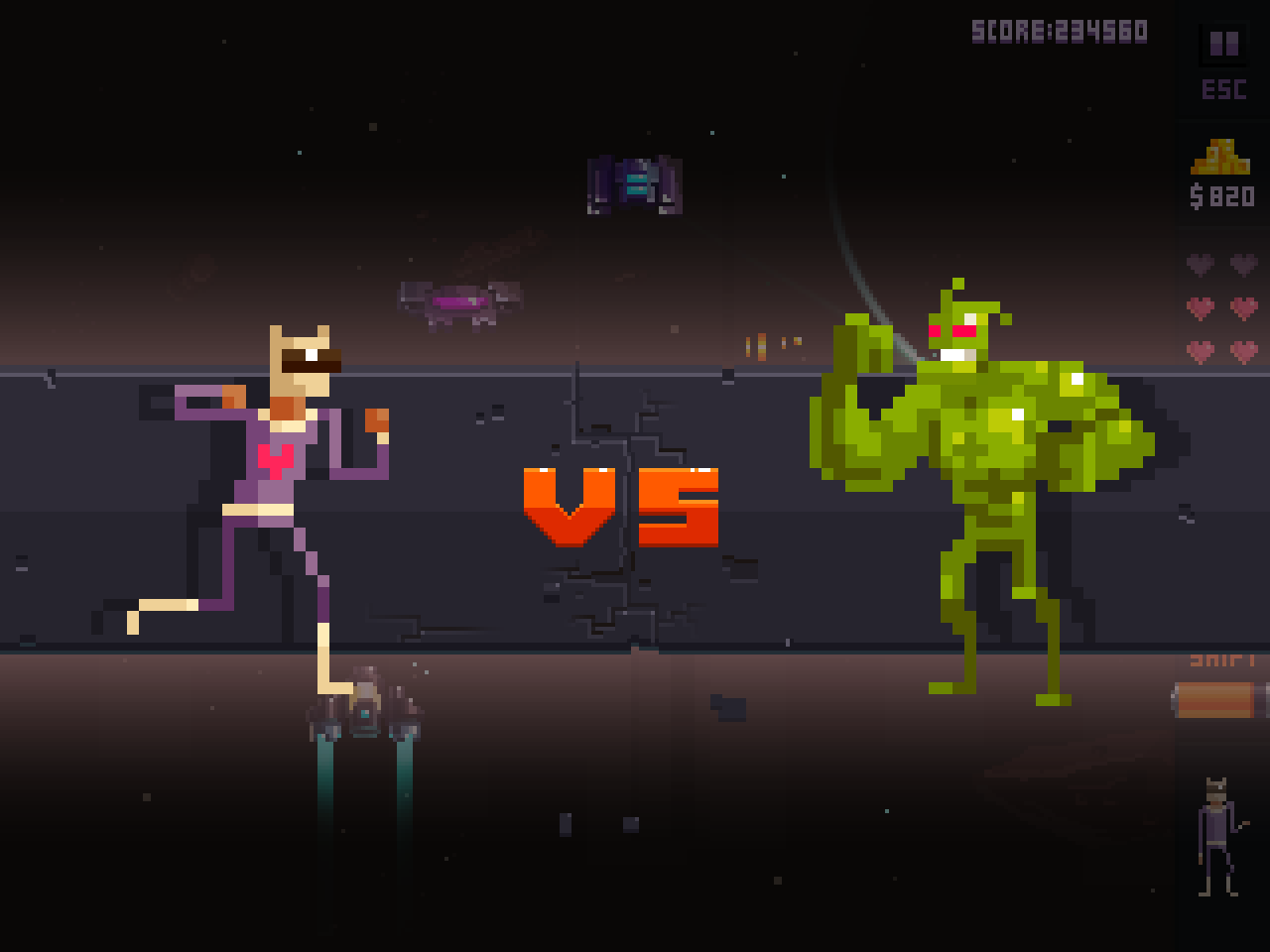The Moscow-based company Nekki, known for games such as Vector and Shadow Fight, has announced an initiative to finance and publish independent projects. The first game that the company will release as a publisher will be Beat the Beat. Sergey Babaev, Director of Business Development at Nekki, said App2Top.ru why the company decided to take up the publication of third-party projects.
Hi! First of all, I would like to clarify what exactly Nekki is going to do as a publisher for future projects?
Hi! I will say right away that we do not plan to reduce everything only to traffic handling. There are more significant players in this regard. On the contrary, we want to approach each project individually through the investment direction, as if it were our own internal development, and let it float. A tailwind for this voyage will already provide traffic.
We don’t want to spray too much – we plan to work with 2-3 projects for 2015. We do not plan to collect a huge portfolio of projects. Lowering the entry bar is the same. If we do not understand the game shown or do not like the genre (i.e. we are unlikely to give useful advice to developers), then we simply will not take it. Even if it is clear that the team is on fire, it asks little for improvements, etc., Especially since there is a negative experience of working with such teams (as, probably, most colleagues have).
Of course, this does not mean that we will believe in the game only if they bring a fighting game, preferably in an eastern setting and especially well if the characters are “shadows”) We treat the current experience without fanaticism and are open to fresh ideas. Beat The Beat, it seems to me, is a vivid example of this. A project of a genre, setting and style unlike any of our products.
Listen, why is this Nekki?
The company needs an effective development strategy. Sometimes it’s more internal releases, sometimes publishing direction, investments, etc. Our first mobile “wine” was the Vector parkour runner. At that time, it was important to consolidate the success and make sure that it was not accidental. The team focused all its efforts on another inhouse development – Shadow Fight 2 (because SF 1 is a game for social networks.networks). Immediately after that, they thought about a new strategy, because the company had extensive opportunities and resources. There were two ways: investing in yourself and investing in third-party projects/studios/teams.
Vector
Which way did you choose?
We decided to carefully “enter both rivers”. Firstly, we set a clear goal for this year to launch three projects internally: Shadow Fight 3, Vector 2 and 11×11. For this we went to the following things:
- increased the team by 2 times (from 50 to 100 people);
- all new projects were transferred to Unity (even Vector 2, previously started on Marmelade);
- we formed a server team (before that, mobile games did not have very serious server support);
- we have assembled a CG department consisting of experienced modellers and CG artists (a whole “film” for SF3 is being produced in the bowels of the department).
Then we decided to master working with external teams. The company’s history is known for various cases, both successful and not so successful. But they were not systematized, they did not have a single concept under them. Now we are forming a full-fledged direction of investment in teams, we want to grow it into an independent department. Indie, jams, festivals are part of the current concept.
You have a portfolio of your own games. More importantly, they are stylistically consistent, recognizable by the company’s fans. Are you afraid to destroy the existing image of the company as part of the initiative? Or are you going to display third-party games under a different brand?
Most likely, there will be something like Nekki Indie (we are still considering the prefix itself). We hired a foreign agency for easy rebranding, including updating the company logo. I think, as soon as we finish with the main task, we will deal with the logo for this direction.
The first game you release will be Beat the Beat. The game reached the final of GamesJam 2014, and was also dissected in the “Gaming Lynch” on “Zuckerberg will call”. The idea to take up the publication of third-party projects arose at the same time?
Yes, the project really became the leader of the GamesJam 2014 festival. The platform itself gamesjam.org and its founder Oleg Chumakov is doing a very big job for the industry: aggregating teams, confronting them with reality (assessments, criticism), pulling them to events, hackathons and much more.
But answering the question, no. Rather, on the contrary, the idea to join the indie community came as a result of a desire to develop an investment direction.
To what extent did these two events (competition and debriefing) play a decisive role in choosing a project (in short, should developers who dream of being published by Nekki break down and submit their games to GamesJam and at the same time ask it to be disassembled in lynch)?
If the Beat The Beat questionnaire had just dropped to my corporate email, I would have paid the same attention to the project as at the festival. Trying to attract attention with a festival (specially waiting for it, etc.) – I don’t see the point. But we still need festivals, because they give a sample – it’s easier to look out for an interesting project or a promising team there.
By the way, the day before yesterday, a video of the game was launched on the network. And when I was reviewing it today, I had another question. I remember the tips that were given to the game as part of the CPU lynch, and it became interesting to me. Those graphic chips that Viktor Surkov advised, will they be implemented?
The video was made by the guys for GamesJam. We will still change it. Viktor’s advice has also already been included in the plan.
Beat the Beat
The game won the jam, it looks interesting, but, sorry, such games do not earn millions …
We are aware that we are potentially talking about amounts an order of magnitude less (than Shadow Fight 2 earns, for example). The difference of “direction” from spontaneous investments – just in the fact that we are going in stages, we try not to overstate the bar. If you put forward a selection requirement: “confidence that the project will earn millions,” then, given the state of the market, it turns out that there is nowhere to invest, there is no one to work with.
With some probability, in order to launch an external project that earns millions of dollars a month, we will have to invest half a million dollars in development in the team (the figures are out of thin air, but the order reflects). I want the direction to grow to such amounts, show consistency on a smaller scale and, as a result, operate with its own personal budget, and not constantly eat off chunks of the income of flagship projects.
The above does not mean that at one point we will renounce our friendship with indie and start looking for large companies for serious investments. We understand that the studio, if successful, will grow and over time it will need not funding for one specific product, but investments for global growth and development.
Why did the choice fall on Beat the Beat?
It was the best project of the festival. And, very importantly, it was implemented and really worked, and was not just announced/presented with a description or a technological demo.
What else got me hooked: I’m indifferent to pixel arcades. Moreover, due to the dominance of such “8-bit” projects, I am biased towards this direction in the schedule. But when he got to the game, he quickly got involved, wanted to listen to the next track, defeat the boss, etc. In other words, the game hooked me not because of something, but in spite of it. It is very important.
Plus, of course, attracted the presence of a large number of details that, at first glance, have nothing to do with the gameplay, but create a mood, entertain the player. For example, in the lower right corner, the main character of the game is furiously banging to the music: he plays on an improvised bass guitar, jumps and shakes his head.
Is it hard to find a cool project today?
It is not enough to wish to “find a cool project”. It is not enough even to have the resources to finance it and to publish it. Cool teams are cool by themselves. If they are interested in investments, then on a different scale (rounds from large funds, etc.). Weak teams are very difficult to pull, working with them takes so many resources that it is easier to focus on your inhouse projects and not look around.
So, in fact, we faced an interesting task: to find teams consisting of creative developers and creating interesting projects, but for some reason have not yet gone into free swimming.
Several times in recent years, I have raised a “wave” of searching for teams. If for the first time I got acquainted with now well-known and successful projects, then from year to year there were fewer and fewer intelligent teams. More often, people began to come across who, unfortunately, are so poorly familiar with the industry that they cannot soberly evaluate their product. What is even worse – they are not ready to hear this assessment from the outside and soberly perceive it.
Then we studied the current state of the indie community, remembered the GamesJam festival to get a sample of projects. I was pleased with the condition – yes, there are strange or simply low-quality games, but there are also very interesting ones.
And how do you, in general, find this state?
You know, the domestic indie movement has developed a lot in recent years, has matured or something. The concept of “doing something on the table” has changed to “making a product that millions will know about.” Many have realized that the real freedom of creativity is when you can live off your creations, and not just show them at competitions, i.e. it is important not only to do, but also to convey to the audience, to get recognition and respect. Gaining respect within your group of enthusiasts is the easiest thing. And before, alas, many independent developers did not understand this.
Plus, they no longer consider the process of making money to be something wrong, etc. If you don’t want to do F2P, monetize according to the advertising model. There are a lot of options, there are no more excuses from entering the market.
The attitude of industry professionals towards indie has also changed. See which mastodons give advice to SiliconJam projects: Leonid Sirotin, Viktor Surkov (Allods Team), Anton Yaroshuk (Vizor Interactive), Roman Povolotsky (2Real Life), etc. And these are exactly the tips – constructive, accessible, applicable in life.
Returning to Beat the Beat: when to wait?
In a couple of months-three months. The project was originally developed for PC and Steam. So together with the guys from 2Players we are finalizing it for mobile devices, and it won’t take too much time, even despite the small team (2 people). We want to get out before the summer – this is the extreme mark.
Thanks for the interview!



